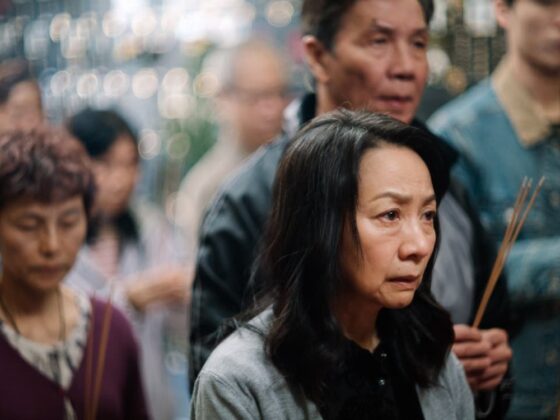Under the Intestates’ Estates Ordinance (Cap. 73) (“IEO”), a ‘valid marriage’ only covers a heterosexual marriage. As it stands, the surviving spouse party to same-sex-marriage cannot qualify as a ‘husband’ or ‘wife’ for the purpose of entitlements under the IEO. While the exclusion of same-sex spouses to legal entitlements accorded to spouses of heterosexual marriages under the IEO was held to be unconstitutional discrimination on the ground of sexual orientation in Ng Hon Lam Edgar v Secretary of Justice [2020] CFI 2412, this article considers the effects of the IEO on inheritance in different types of relationships outside of heterosexual marriages.
Ng Hon Lam Edgar v Secretary of Justice [2020] CFI 2412
We have discussed this case in further detail in our article, Advances in Equality for Same-sex Couples Under Inheritance Law.
The Applicant of this judicial review, Mr. Edgar Ng (“Edgar”) is a permanent resident of Hong Kong. In January 2017, Edgar and another male Hong Kong permanent resident of Hong Kong (“H”) married in London. Under the Hong Kong Government’s Home Ownership Scheme, Edgar purchased a flat for the purposes of becoming his and H’s matrimonial home. As same-sex marriage is not recognised in Hong Kong, H was unable to become a joint owner of the flat with Edgar. Due to Hong Kong’s intestacy laws, Edgar was concerned that the flat would not be passed to H under the IEO should he die without a Will.
In June 2019, Edgar sought clarification through his solicitors on ‘whether same-sex marriages performed according to the laws of foreign jurisdictions would be recognised as marriages for the purpose of probate, inheritance and intestacy.’ The Secretary for Justice refused to provide clarification on the basis that it was not the role of the Department of Justice to provide legal advice to private individuals or their solicitors. Consequently, in November 2019, Edgar sought leave to apply for judicial review, challenging the constitutionality of the definitions of ‘valid marriage’, ‘husband’, and ‘wife’ under sections 2 and 3 of the IEO, and section 2 of the Inheritance (Provision for Family and Dependants) Ordinance (Cap. 481) (“IPO”), arguing, inter alia, that they were unjustified discrimination on the ground of sexual orientation.
The Court of First Instance adopted a two-pronged approach to determine the constitutionality of the IEO and IPO, determining:
- Whether there is differential treatment on a prohibited ground;
- Where differential treatment can be demonstrated, whether differential treatment can be justified. The second approach further questions whether the differential treatment serves legitimate aims, and whether the differential treatment has a rational connection to the legitimate aims.
It was held that there was differential treatment on the prohibited ground of sexual orientation. As to the second step, while differential treatment served legitimate aims, it was held that there was no rational connection between the differential treatment to the legitimate aims.
Edgar’s leave to apply for judicial review was allowed, and a declaration and remedial interpretation of the terms ‘valid marriage’, ‘husband’, and ‘wife’ in the IEO and IPO was ordered.
De-facto relationships
In Hong Kong, couples in a de-facto relationship (i.e. cohabitating without being married), regardless of how long they have been together, differ in legal status to married couples. As a consequence, couples in de-facto relationships do not enjoy the same privileges (including taxation, pensions, medical, and public housing benefits). This also extends to inheritance: if one partner in a de-facto relationship dies without a Will (what we usually call “intestate”), the other will not be eligible for succession to their partner’s estate, as the relationship is not eligible under section 4 of the IEO.
The surviving partner may be able to gain financial provision from their deceased partner’s estate by way of application pursuant to section 3(ix) Inheritance (Provision for Family and Dependants) Ordinance (Cap. 481). The surviving partner will need to prove that their deceased partner had maintained him/her either wholly or substantially before their death.
For example: Carol and John have been living together for ten years but are not legally married. If Carol dies without a Will, John will not be able to inherit her estate. If they have a daughter together, Carol’s residuary estate will be held on statutory trust for their daughter (section 4(5) of the IEO). John may be able to claim financial provision from Carol’s estate if he can prove that she had maintained him immediately before her death. If he cannot prove so, he will have no remedy from her estate. In the current day and age, where both parties work and earn a similar income, it is often hard to make a claim for financial provision.
Unions of concubinage
Parties to unions of concubinage (tsip – where 妾 means “concubine” in Chinese – or a male partner of such a union) entered into before 7 October 1971 are given certain rights of succession and recognised by section 13 and schedule 1 of the IEO. Generally speaking, surviving concubine(s) will take approximately one third or one sixth of the residuary estate. The distribution of the intestates’ estate will differ slightly depending on the number of concubines, whether there is a surviving wife, children, parents, brothers or sisters.
Takeaways
Regardless of the type of relationship you are in, the best course of action is to leave a Will. Having a Will ensures that partners will be provided for and have legal means of inheritance in the case of an unfortunate death. As we have previously discussed, making a Will is also beneficial to any surviving family in the case of inheritance disputes, as it provides a starting point for possibly lengthy and costly disputes.
At the end of the day, family legacies must be planned properly in order to hold families together, rather than tear them apart. If you want to know more about how to benefit from a thorough estate plan for your family in Hong Kong – and avoid all the pitfalls discussed – get in touch with our Private Client team of solicitors.
This article is for information purposes only. Its contents do not constitute legal advice and readers should not regard this article as a substitute for detailed advice in individual instances.




